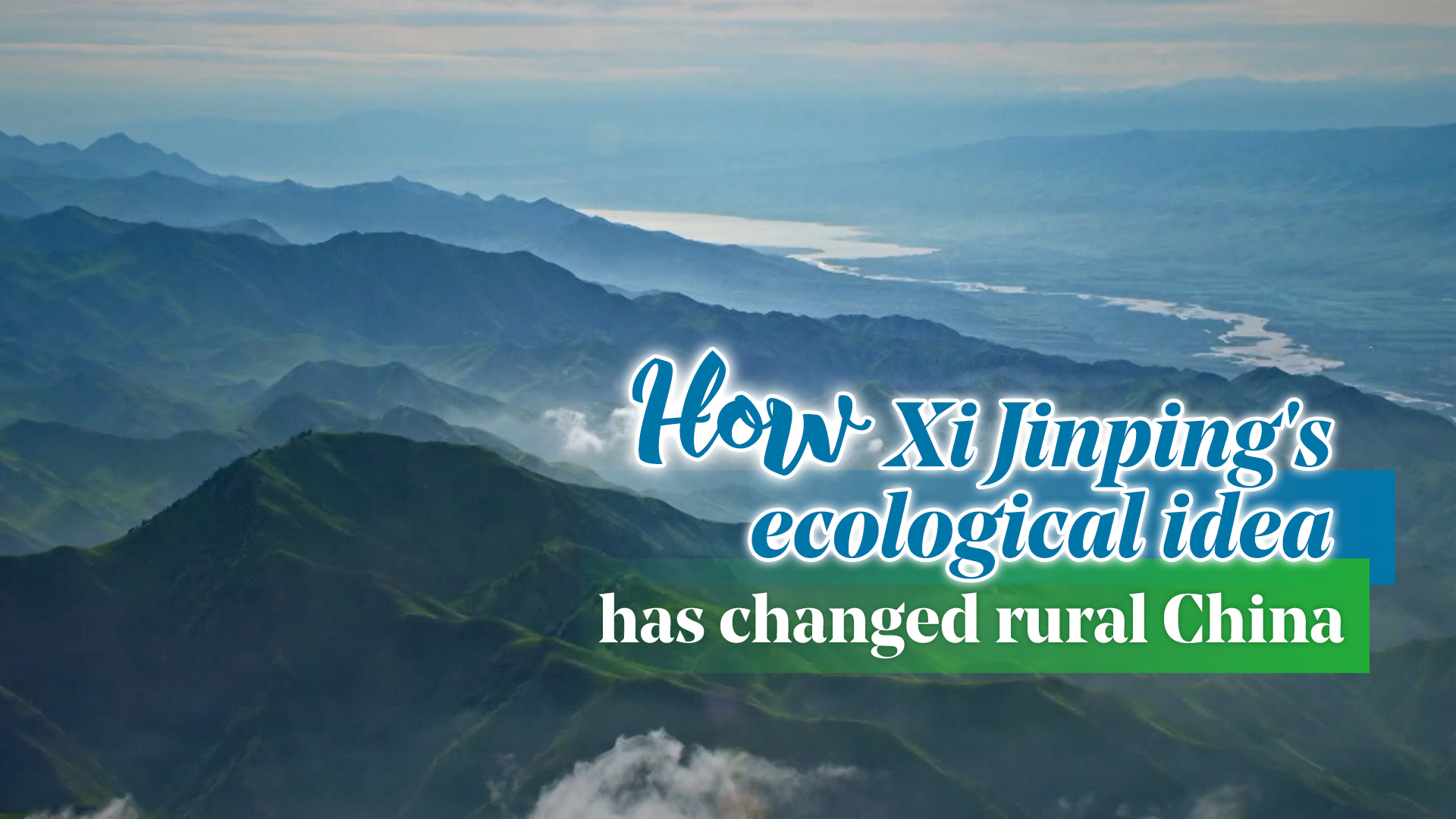Saturday marks 15 years since the proposal of the green development concept – "Lucid waters and lush mountains are invaluable assets." Yucun Village, a flourishing hamlet in east China's Zhejiang Province, is its birthplace.
The village, now a national 4A-class scenic area, is renowned for its beauty and high livability. Yet, believe it or not, just a decade ago, filthy water and dust-covered trees lay beneath a grey sky in what is now an idyllic oasis.
How did the small village accomplish such a stunning transformation?
Yucun, cradle and model
In a bid to reduce poverty, Yucun pursued economic growth from mining in the 1990s. At its peak in the mid-1990s, the remote village with a population of only 1,000 people across 280 households boasted an average annual per capita income of 3,000 yuan (434 U.S. dollars), nearly the equivalent of the provincial capital Hangzhou.
07:00

However, the source of the prosperity also delivered problems. Bao Xinmin, Party secretary of Yucun, told CGTN, "Mines were like gold and silver mountains then. [But as a result of heavy mining] our water and mountains became heavily polluted."
In 2003, the village ended its reliance on the "stone economy" and tried to restore the local ecosystem.
In August 2005, the move won the praise of Xi Jinping, then Party secretary of the Zhejiang Provincial Committee of the Communist Party of China. During a visit to the village, he spoke highly of the local government's efforts to stop mining activities and close cement factories in order to deal with serious pollution.

Yucun, then and now. /Xinhua
Yucun, then and now. /Xinhua
"Just now you said that you've made the decision to shut down some mines, which is a wise move. Lucid waters and lush mountains are invaluable assets," Xi told the local officials at a meeting, according to a video released by China Central Television.
"The green development concept has given a face-lift and resulted in fascinating changes to the village, improving the residents' income six times," Pan Wenge, former Party secretary of Yucun, told China Daily.
Over the past 15 years, villagers have planted trees on the mountains, turning the scarred slopes green again. Green development has also been boosted with white tea farms, rural tourism and ecotourism.
In 2019, the village registered a gross economic income of about 280 million yuan (40 million U.S. dollars), becoming a model of the comprehensive construction of a well-off society in rural Zhejiang.
"The ecological environment itself is the economy. All ecological protection efforts will be rewarded."
──Xi Jinping
Evolution
In an article published by Zhejiang Daily in 2006, Xi elaborated on the three stages of developing ties between green development and economic growth.
During the first phase, people sought quick economic returns by ignoring environmental protection.
In the second phase, they began to realize the importance of green development but still pursued high economic growth.
It was only during the third phase that people finally realized that green development produces true "gold," and it is only through green development that humans and nature can coexist harmoniously.
During his official visit to Kazakhstan on September 7, 2013, Xi gave a speech at Nazarbayev University and answered questions from students about environmental protection.
"We want green waters and green mountains, but we also want gold mountains and silver mountains," he said. "It is better to have green waters and green mountains than gold mountains and silver mountains – and green waters and the green mountains are gold mountains and silver mountains."
Walk the talk
"The development of Yucun proves that green development is the right path, which should be carried on in the future." ──Xi Jinping
Green development is not an empty idea in China. Action is being taken across the country.
In order to solve waterway pollution, China introduced the "Master of the River" scheme in 2016. Under it, every river is assigned a "river chief."
And the Yangtze River, as well as the Yellow River, and two other key waterways – the Heilongjiang River and Nenjiang River – have witnessed significant improvements in their water quality over the past years.
Controlling sandy lands is another major task for China, a country where the combined area of deserts, sandy lands and the Gobi is larger than its total arable land.
In 2019, an environmental study by NASA concluded that between 2000 and 2017, China had been responsible for over a quarter of the new green areas created worldwide, making it the world's biggest contributor.
In addition, China released an array of national measures to drive economic development and the industrial structure towards a green transition.
These include the establishment of ecological compensation mechanisms, amendments to the Environmental Protection Law, the launch of environmental inspections and the levying of new environmental protection taxes.